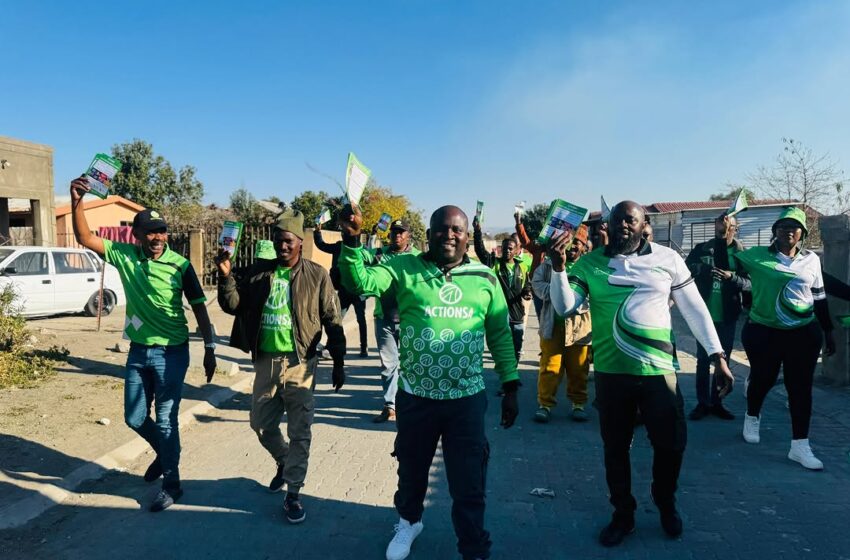ActionSA pushes to amend constitution as Dudula targets migrants at clinics

As tensions around access to public healthcare grow, ActionSA is renewing its push to amend South Africa’s Constitution, citing strain on the healthcare system from undocumented migrants. This comes in the wake of Operation Dudula’s controversial actions at public clinics—efforts that human rights bodies have strongly condemned.
ActionSA’s parliamentary chief whip, Lerato Ngobeni, said the party submitted proposals back in May to revise section 27 of the Constitution. The goal? To limit healthcare access for undocumented foreign nationals. Ngobeni claimed that in some areas, foreign nationals made up as much as 70% of patients, pushing South Africans to the margins of an already overstretched system.
“South Africa can’t be expected to shoulder this responsibility indefinitely, especially when many other nations won’t even allow entry without proof of medical coverage,” Ngobeni said in a statement.
However, the South African Human Rights Commission (SAHRC) has pushed back, reminding the public that healthcare is a constitutional right for everyone—regardless of citizenship or documentation. Quoting sections 27(1) and 27(3), the commission emphasised that access to healthcare, especially emergency treatment, cannot be denied.
The SAHRC also raised red flags about recent incidents at clinics in Hillbrow and Rosettenville, where members of Operation Dudula allegedly blocked patients without documentation, inspected clinic cards, and even intimidated medical staff. These actions, the commission said, undermine fundamental rights to dignity, life, and equality.
“Access to healthcare is not just a legal issue—it’s a human rights issue,” the SAHRC said. “No individual or civic group has the authority to police clinics or enforce immigration law.”
Enforcement responsibilities lie with the Department of Home Affairs and, when necessary, the South African Police Service—not private citizens or political movements.
Now officially a political party, Operation Dudula continues to defend its actions as “community interventions”. National organiser Zandile Dabula told SABC that undocumented migrants should receive only emergency care—after being arrested for immigration violations. She denied that their actions are xenophobic, blaming government inaction for forcing communities to step in.
Legal analysts, however, caution that these interventions may breach both the Constitution and the National Health Act, which forbid discrimination based on nationality or immigration status. International treaties, such as the UN Refugee Convention and the African Charter on Human and Peoples’ Rights, also compel South Africa to provide basic healthcare to all individuals within its borders.
According to constitutional law expert Pierre de Vos, Section 27 of the Constitution clearly applies to everyone—not just South African citizens. Any attempt to amend it, he said, would require substantial political backing, including a two-thirds majority in the National Assembly and support from six of the nine provinces.
Meanwhile, healthcare workers in Gauteng and KwaZulu-Natal continue to report critical staff shortages, long waiting times, and strained infrastructure.
While the national Department of Health hasn’t formally aligned itself with ActionSA’s stance, it has acknowledged that the system is under immense pressure—citing high demand, limited infrastructure, and tight budgets. Currently, undocumented migrants are entitled to basic healthcare, though access to specialist services remains limited.
Civil society organisations like Kopanang Africa Against Xenophobia and Section27 are now taking legal action to halt Operation Dudula’s activities at clinics. Court rulings on these cases are expected in the coming months.
With local elections on the horizon in 2026, ActionSA appears poised to campaign on promises of tighter immigration controls and constitutional changes. But critics warn that such a platform—if not carefully framed—could inflame xenophobic tensions and deepen social divisions.

